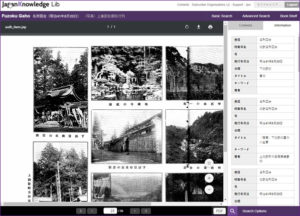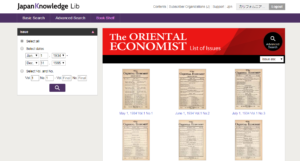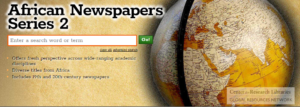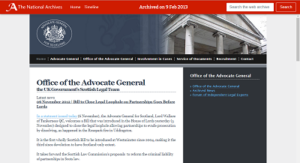Author: dorner
Workshops for graduate students and early career researchers
The Library’s Office of Scholarly Communication Services is holding a series of workshops in October focused on publishing and professional development training for graduate students and early career researchers. All workshops will take place during the week of October 22 at the Graduate Professional Development Center, 309 Sproul Hall. Light refreshments will be served.
Copyright and Your Dissertation
Tuesday, October 23 | 1-2:30 p.m. | 309 Sproul Hall | RSVP
This workshop will provide you with a practical workflow for navigating copyright questions and legal considerations for your dissertation or thesis. Whether you’re just starting to write or you’re getting ready to file, you can use this workflow to figure out what you can use, what rights you have, and what it means to share your dissertation online.
From Dissertation to Book: Navigating the Publication Process
Wednesday, October 24 | 1-2:30 p.m. | 309 Sproul Hall | RSVP
Hear from a panel of experts – an acquisitions editor, a first-time author, and an author rights expert – about the process of turning your dissertation into a book. You’ll come away from this panel discussion with practical advice about revising your dissertation, writing a book proposal, approaching editors, signing your first contract, and navigating the peer review and publication process.
Managing and Maximizing Your Scholarly Impact
Friday, October 26 | 1-2:30 p.m. | 309 Sproul Hall | RSVP
This workshop will provide you with practical strategies and tips for promoting your scholarship, increasing your citations, and monitoring your success. You’ll also learn how to understand metrics, use scholarly networking tools, evaluate journals and publishing options, and take advantage of funding opportunities for Open Access scholarship.
Event: Bancroft Roundtable: “A Wise Counselor and Faithful Servant: The Life of Regent Andrew Smith Hallidie”
The Bancroft Library begins the 2018-2019 academic year with a new series of roundtable talks. Please join us!
The first talk will take place in the Lewis-Latimer Room of The Faculty Club at noon on Thursday, September 20. Taryn Edwards, librarian, historian, and strategic partnerships manager at the Mechanics’ Institute of San Francisco, will present “A Wise Counselor and Faithful Servant: The Life of Regent Andrew Smith Hallidie.”
__________________________________________________________
In honor of the 150th anniversary of the founding of the University of California, Regent Andrew Smith Hallidie’s biographer, Taryn Edwards, will give a talk about his life. Considered the father of San Francisco’s cable car, Hallidie arrived in California during the Gold Rush and quickly rose to meet the challenges of the frontier using his gumption and his father’s patented wire rope to build bridges, ore transportation systems, and a business empire in the West. In addition to being a leader of the state’s industrial endeavors, he was a champion of the San Francisco Bay Area’s libraries and educational institutions. Hallidie was named an ex officio regent of the University of California in 1868 and was later appointed a regent in his own right, carefully serving until his death in 1900.
We hope to see you there.
José Adrián Barragán-Álvarez, Michael Maire Lange, and Kathi Neal
Bancroft Library Staff
Exhibit: Immigration, Deportation and Citizenship, 1908-2018: Selected Resources from the IGS and Ethnic Studies Libraries
 “Immigration, Deportation and Citizenship, 1908-2018: Selected Resources from the IGS and Ethnic Studies Libraries” contains items from the Ethnic Studies Library and the Institute of Governmental Studies Library addressing historical attitudes and policy around immigration, deportation, and citizens’ rights, as well as monographs and ephemera relating to current events.
“Immigration, Deportation and Citizenship, 1908-2018: Selected Resources from the IGS and Ethnic Studies Libraries” contains items from the Ethnic Studies Library and the Institute of Governmental Studies Library addressing historical attitudes and policy around immigration, deportation, and citizens’ rights, as well as monographs and ephemera relating to current events.
IGS Library
109 Moses Hall
Mon.-Fri.1-5pm
Please see the accompanying Library Guide for a key to the exhibit as well as additional materials:
Primary Sources: Fūzoku Gahō
 Description from the California Digital Library: “This resource provides online access to a historical journal Fūzoku Gahō which was originally published in Tokyo between February 1889 and March 1916 in 518 issues with over 38,000 articles. It is said that Fūzoku Gahō was the first graphic magazine produced in Japan. The articles published on the journal cover a wide range of subjects, including social and cultural trends and conditions in the Edo, Meiji, and Taisho periods, customs, history, literature, things/objects and affairs, geography, war and disasters.”
Description from the California Digital Library: “This resource provides online access to a historical journal Fūzoku Gahō which was originally published in Tokyo between February 1889 and March 1916 in 518 issues with over 38,000 articles. It is said that Fūzoku Gahō was the first graphic magazine produced in Japan. The articles published on the journal cover a wide range of subjects, including social and cultural trends and conditions in the Edo, Meiji, and Taisho periods, customs, history, literature, things/objects and affairs, geography, war and disasters.”
For more information about this resource, please check at: https://japanknowledge.com/ en/contents/fuzokugaho/index.html.
Primary Sources: Oriental Economist Digital Archive
 Here’s a description from the California Digital Library: “The Oriental Economist Digital Archive is an online version of the print journal Oriental Economist originally published monthly between 1934 and 1985 and weekly between January 1946 and August 1952 in Japan (in 874 volumes in 44,000 pages). It is one of the very few commercial journals in English with a focus on the Asian economy that lasted over 50 years from the pre-war period. While the Oriental Economist included some translations of articles published in the Japanese journal Tōyō Keizai Shinpō (1895-1960) /Shūkan Tōyō Keizai (1960-present), it also published its original contents.”
Here’s a description from the California Digital Library: “The Oriental Economist Digital Archive is an online version of the print journal Oriental Economist originally published monthly between 1934 and 1985 and weekly between January 1946 and August 1952 in Japan (in 874 volumes in 44,000 pages). It is one of the very few commercial journals in English with a focus on the Asian economy that lasted over 50 years from the pre-war period. While the Oriental Economist included some translations of articles published in the Japanese journal Tōyō Keizai Shinpō (1895-1960) /Shūkan Tōyō Keizai (1960-present), it also published its original contents.”
For more information about this resource, please check at: https://japanknowledge.com/en/ contents/orientaleconomist/index.html.
Trial: Atlanta Daily World and Norfolk Journal and Guide
The Library has trial access to the historical African American newspapers, Atlanta Daily World and Norfolk Journal and Guide until July 29.
The Library’s trial of Pittsburgh Courier has been extended until July 20.
Announcements regarding open access & journal negotiations

I wanted to share this announcement from the UC systemwide Office of Scholarly Communication: https://osc.universityofcalifornia.edu/2018/06/championing-change-in-journal-negotiations/
The announcement speaks to work that the University of California’s Systemwide Library and Scholarly Information Advisory Committee (SLASIAC) has been doing in partnership with our university libraries and the systemwide academic senate’s Committee on Library and Scholarly Communication (UCOLASC). These groups have been considering the twin challenges of journal affordability and what they recognize as the moral imperative of achieving a truly open scholarly communication system.
Please feel free to e-mail schol-comm@berkeley.edu with any questions.
Primary sources: World Newspaper Archive: African Newspapers, Series 2, 1835-1925
 As a charter participant in the World Newspaper Archive program conducted by the Center for Research Libraries, we have access to the newly released module African Newspapers, Series 2, 1835-1925. This resource contains 340,000 pages of content from African newspapers published between 1835 and 1925, offering unique coverage of nearly a century of African history. The collection features nearly 40 titles from Algeria, Angola, Liberia, Madagascar, Morocco, Mozambique, Namibia, Nigeria, South Africa and Uganda. Titles were selected from CRL and member collections to complement and extend the range of material available in African Newspapers, Series 1. Included are such notable publications as:
As a charter participant in the World Newspaper Archive program conducted by the Center for Research Libraries, we have access to the newly released module African Newspapers, Series 2, 1835-1925. This resource contains 340,000 pages of content from African newspapers published between 1835 and 1925, offering unique coverage of nearly a century of African history. The collection features nearly 40 titles from Algeria, Angola, Liberia, Madagascar, Morocco, Mozambique, Namibia, Nigeria, South Africa and Uganda. Titles were selected from CRL and member collections to complement and extend the range of material available in African Newspapers, Series 1. Included are such notable publications as:
• Africa’s Luminary (Monrovia, Liberia)
• Cape Daily Telegraph (Port Elizabeth, South Africa)
• Cape Times (Cape Town, South Africa)
• O Moçambique (Mozambique)
• Munno (Kampala, Uganda)
• Nigerian Times (Lagos, Nigeria)
Resource: UK Government Web Archive
 A collaboration between the National Archives and Gov.uk, the UK Government Web Archive gathers every publicly available website hosted by the British government since 1996. The contents are browsable and searchable and include Twitter posts, YouTube videos, and over a billion documents.
A collaboration between the National Archives and Gov.uk, the UK Government Web Archive gathers every publicly available website hosted by the British government since 1996. The contents are browsable and searchable and include Twitter posts, YouTube videos, and over a billion documents.
Primary Sources: Records of the US Department of State for Panama & Brazil
 The Library has recently acquired online access to these government documents:
The Library has recently acquired online access to these government documents:
Panama: Records of the U.S. Department of State, 1950-1963
Documents in this collection trace U.S.-Panamanian relations during the Truman, Eisenhower, and Kennedy administrations. Issues relating to shipping and the significance of the Panama Canal during the Cold War include: “Panama Stymies Use of Her Flag in Vietminh Trade … A parallel situation exists in the trade with Red China” (September 1955); and “Ships Enroute to U.S. from Soviet or Satellite Ports” (October 1957). A letter to U.S. Ambassador Julian F. Harrington details “the possibility that the Conference on the Law of the Sea in 1960 would result in a general acceptance by the United States of a six-mile breadth of territorial sea” (April 1960). Other documents chart day-to-day aspects of the economy: a report on sugar production with tables on sugar production and consumption (June 1950); and an announcement by the Panamá Canal Company of a contract award for native lumber (August 1952).
Brazil: Records of the U.S. Department of State, 1960-1963
This archive focuses on Brazil in the early 1960s. Sample documents include a report from Recife on the cultivation and export of pineapples, “especially in the states of Pernambuco and Paraíba,” as “an increasing source of foreign exchange for the Northeast.” A November 1962 memorandum details the issuance of 40 billion cruzeiros in new currency “to meet runs on commercial banks during the political crisis, gradually flowing back to the Bank of Brazil following the return of normal conditions.” The collection covers the period following the resignation from the presidency of Janio Quadros in 1961 and the succession of Vice President Joao Goulart, whose years in office were marked by high inflation, economic stagnation, and the increasing influence of radical political elements. The armed forces, alarmed by these developments, staged a coup on March 31, 1964, during the administration of U.S. President Lyndon B. Johnson.